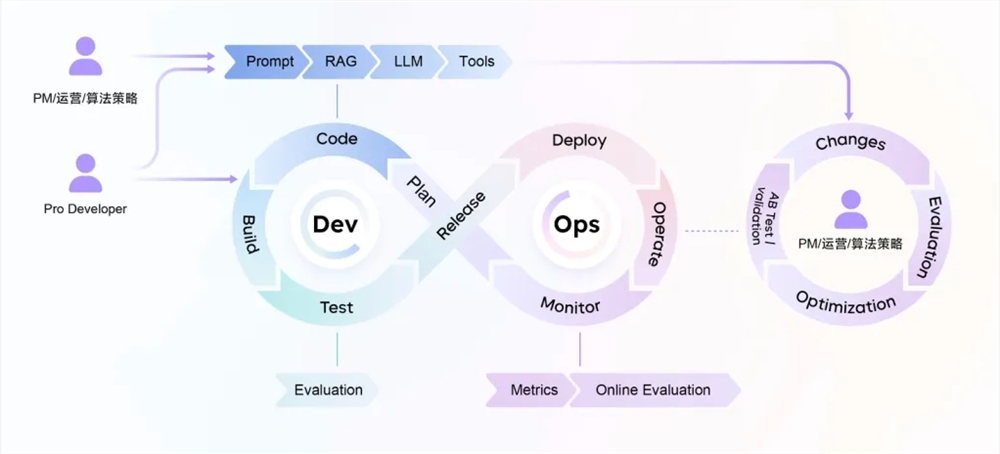Recently, Volcano Engine officially announced the launch of its enterprise AI middleware HiAgent 2.0, aimed at addressing practical needs and pain points in Agent application development in real commercial environments, helping enterprises achieve efficient delivery of intelligent agents from development to operations.
HiAgent 2.0 is positioned as an enterprise AI middleware. Compared with the previous version, HiAgent 1.0, it has expanded in four dimensions. Upward, HiAgent 2.0 provides more industry scenario templates and a rich plugin market, greatly reducing the threshold for building intelligent agents; downward, it integrates multi-model management and model post-training toolchain, achieving "model-application integration" effect optimization; to the right, it adds intelligent agent operation and maintenance capabilities, as well as low-code and high-code hybrid development capabilities, covering full lifecycle management of intelligent agents; to the left, it released Canvas, a unified human-machine interaction entry point, allowing intelligent agents to better integrate into enterprise operations as "digital colleagues".
Based on the Agent DevOps concept, HiAgent 2.0 provides full lifecycle management support for intelligent agents, from strategy development, capability building, performance evaluation, application release, online observation to quality optimization. During this process, HiAgent 2.0 not only supports full-chain tuning from models to applications but also ensures that intelligent agents become "smarter with use".

In the development phase, HiAgent 2.0 provides over 100 industry scenario templates and 100 plugins, and supports seamless integration with MCP, enabling users to quickly build intelligent agents based on prompts, plugins, MCP, knowledge bases, and workflows. The evaluation phase is equipped with an advanced evaluation system, which quantitatively assesses the performance of intelligent agents and large models from multiple dimensions. The release phase supports deploying intelligent agents to IM channels such as Feishu, DingTalk, and WeChat, or integrating them with existing enterprise systems through API and WebSDK. In the online observation phase, an elaborate observation system monitors the performance, effectiveness, and user feedback of intelligent agents in real time, accumulating high-quality production data to support the construction of evaluation sets and training sets.
In addition, HiAgent 2.0 offers a one-stop model training and inference capability, supporting intelligent agents to access various open-source and closed-source models, making it easy for enterprises to compare different model performances and switch models as needed. It also provides one-stop model inference, data, and fine-tuning services, helping enterprises to access and deploy various models at low cost and low threshold, as well as train their own enterprise models. The introduction of the low-code and high-code hybrid development mode balances agile implementation with enterprise-level deep needs, achieving seamless collaboration between business personnel and professional developers.
The launch of the Canvas interaction interface further solves the pain point of "not being able to use" after intelligent agents go live. Intelligent agents developed on the HiAgent platform can be published to the portal with one click, and enterprise employees and multiple intelligent agents can collaborate efficiently through a canvas-style interactive interface tailored for each individual. User data and preferences accumulated during the interaction can also feed back to optimize intelligent agents, forming a positive cycle of "use - iteration - smarter".
Currently, HiAgent 2.0 has been implemented in multiple industries such as education, government affairs, finance, manufacturing, and retail, and has helped many customers implement intelligent agent applications. Volcano Engine stated that as more industry practices deepen, HiAgent will continue to release productivity value, helping more intelligent agents become "digital colleagues" in enterprises and "obtain licenses" in thousands of companies and factories.
